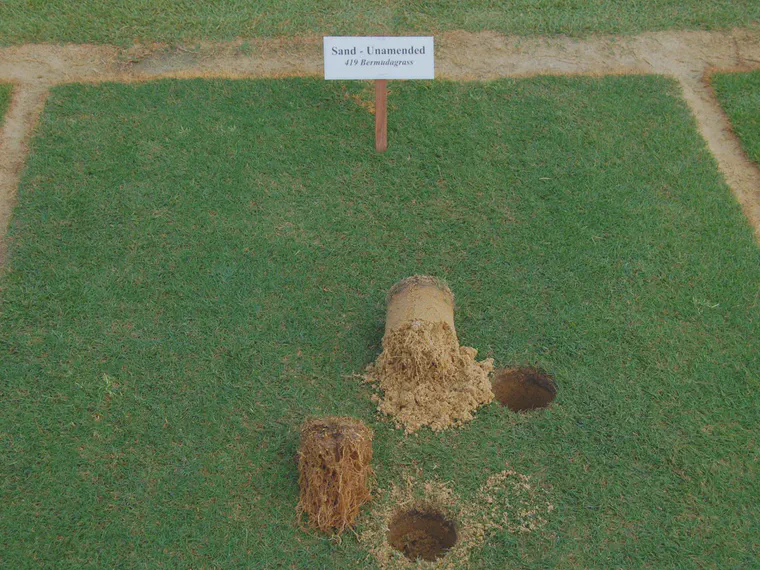Does extra potassium improve bermudagrass performance when soil sodium is high?
The short answer is no, so long as sufficient potassium (K) is present in the soil.
Cisar et al. looked at Tifway bermudagrass performance when the soil contained high amounts of sodium (Na). The results were presented in Beijing at the 2013 International Turfgrass Society Research Conference and are published in the ITS research journal as “Potassium and sodium application effects on soil-test values, and turfgrass quality, clipping yield, and elemental composition of bermudagrass grown in a sand soil.” I was especially interested in this research, because I observed Tifway bermudagrass growing in Thailand, and performing well, despite soil Na more than twice the level of soil K.

In the experiment of Cisar et al., treatments of sodium chloride were made to establish high levels of soil Na. Over the course of this four-year study, where Na was applied, the soil Na levels were often more than 10x higher than the soil K levels. Where Na was applied, the average soil Na was 246 ppm; where Na was not applied, average soil Na was 47 ppm.
After a thorough examination of the results, Cisar et al. concluded that:
The results of this intensive 4-year investigation do not suggest that additional K fertilization is beneficial for bermudagrass quality or clipping yield when elevated soil Na is present.
“Little to no increase in tissue K was observed for K application rates greater than 1.25 g/m2/month.” (1.25 g/m2/month is equivalent to 0.25 lb/1000 ft2/month)
“Higher application rates of K fertilization generally did not result in an improvement of bermudagrass quality ratings.”
One can use the MLSN guidelines to ensure soil K is kept at an adequate level. Adding more K beyond that level, as this research by Cisar et al. reports, does not seem to confer any benefit. Even when the soil Na is much higher than the K.